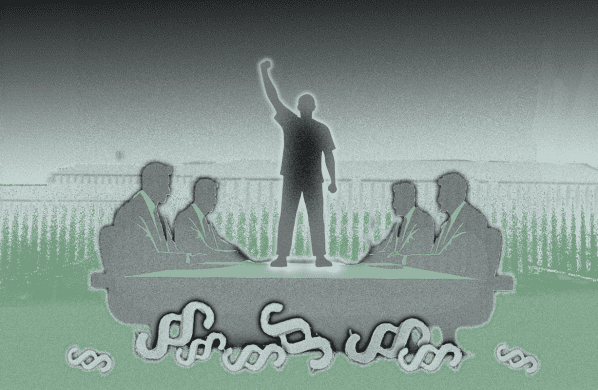ZIMBABWE: Tsvangirai presents “roadmap to democracy” and another ultimatum
HARARE, 9 June (IRIN): Zimbabwes opposition leader, Morgan Tsvangirai, appears to have stepped back from launching a long-threatened anti-government protest against deteriorating living conditions.
In the capital, Harare, Tsvangirai on Friday instead presented a “roadmap to legitimacy” – an ultimatum to the government demanding a new constitution, internationally supervised free and fair elections and an acknowledgement it was responsible for the current “national decay”.
– Should the government refuse to give in to our demands, we will be left with no option but to implement the (Movement for Democratic Change) congress resolution, which is to engage in peaceful democratic resistance, Tsvangirai said.
The Mugabe-government has repeatedly warned that any protest action would be illegal and bring an immediate crackdown.
The former labour leader underlined that the main MDC faction he leads was not “calling for the violent toppling of the Zimbabwean government, but we want people to be able to exercise their democratic right to express their discontent”.
Tsvangirais more militant faction held a congress in March, when delegates agreed on a “short sharp programme of winter discontent” to register their anger over the countrys deep political and economic crisis.
MDC insiders told IRIN the new “road map” strategy was an attempt by moderates in Tsvangirais camp to give dialogue an opportunity, amid reports of renewed interest by the international community in finding a solution to Zimbabwes despair.
Tsvangirai appeared to favour the idea: – The UN effort is welcome, but must not be an excuse for regional inaction. The international campaign is welcome, as long as it is going to alleviate the suffering that Zimbabweans are experiencing.
The country is trying to cope with four years of food shortages caused by erratic rainfall, the impact of a chaotic fast-track land reform programme on the agricultural sector and a critical lack of foreign currency to cover imports. Inflation has climbed beyond 1.000 per cent while salaries have failed to keep pace.
The MDC, formed under Tsvangirai in 1999, split over a decision to participate in senate elections last year. Tsvangirai overruled a vote by party leaders to take part in the controversial poll and both camps have spurned mediation efforts, weakening their challenge to the 26-year rule of President Robert Mugabe.
Tsvangirais former ally, Welshman Ncube, told IRIN that he had always doubted whether the anti-senate faction would confront the government on the streets.
– I wish them well, but they said it would be a short sharp winter programme and I hear excuses keep coming up. Very soon we will be in the summer and I doubt if anything will have been done, he said.
Zimbabwes economic crisis has also not spared the security forces, which are suffering unprecedented manpower and equipment shortages, according to a recent all-party parliamentary portfolio committee that recently toured police stations and military camps.
One member of the committee told IRIN: – In Gweru city, the capital of the Midlands province, we found that there were no teargas canisters, while only one police vehicle was servicing the entire city. A lot of vehicles were grounded, either because there was no petrol or there was no money to buy spare parts.
Parts of the report read: “In terms of manpower shortages, Gweru was one of the hardest hit. There were 175 officers working at the station instead of 300, meaning the station is understaffed. The officers faced an acute shortage of accommodation, to the extent that some married officers were accommodated in former horse stables.”
Some police stations did not have lights because money to buy the bulbs (pærer) had run out. At another police station, the committee found that petty criminals detained in the cells had not been fed for two days.
Kilde: FN-bureauet IRINnews















